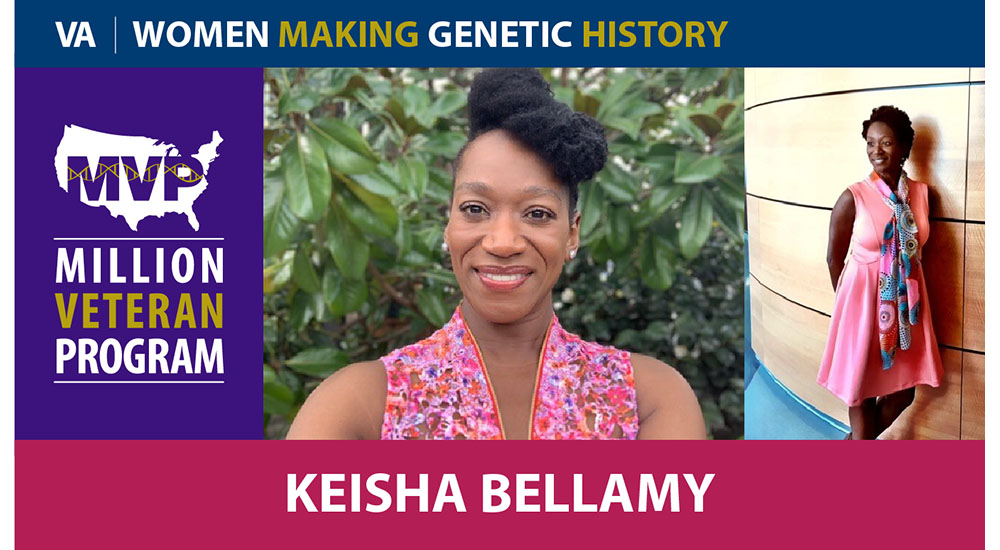Army Veteran Keisha Bellamy begins each day with a cup of coffee, opens her laptop and logs in to Zoom.
She facilitates a six-week course on healthy living for Veterans, and on one particular morning, one woman in the group was struggling. The Veteran lives with post-traumatic stress disorder, and was feeling defensive, disrupting the group conversation.
Bellamy has seen these actions before in others. As a registered nurse with a background in mental health nursing, she redirects the conversation with skill and compassion.
“You see, at VA we offer a safe haven to Veterans like this woman who others might dismiss or find difficult to work with in a group setting,” Bellamy says. “That’s because many employees at VA are Veterans. We see ourselves in our patients and they see themselves in us.”
After six weeks, the Veterans graduate with new skills and goals for managing chronic illness. They also finish the course as comrades in healthier living, offering each other friendship and support as they manage their illness together.
For Bellamy, this is the best part of her job.
Practice what you preach
Bellamy has 15 years of service at VA with the last two years at the San Francisco VA Healthcare System. There, she oversees programs in health promotion and disease prevention.
To encourage Veterans to sign-up, it’s important to be a good role model, Bellamy says. You have to build relationships and practice what you preach.
So, every week before the pandemic, Bellamy would unroll her yoga mat and go into downward-facing dog with fellow Veterans at a community yoga studio. Afterward, she would chat with classmates and tell them about other health and wellness programs at San Francisco VA.
And when VA’s Million Veteran Program launched in 2011, Bellamy was one of the first to enroll.
The program collects a blood sample from participating Veterans for genetic testing along with information on their health, lifestyle and military exposures to better understand disease in Veteran populations.
With this data, the program supports groundbreaking research in precision medicine that will one day offer Veterans the personalized care they deserve.
“Being part of MVP allows me to explain what it’s like to enroll and be part of the program,” says Bellamy, who is now joined by 830,000 fellow Veterans in what has become one of the largest genetics research programs in the world.
MVP invites more women, Veterans of color, to participate
Bellamy has a connection with Veterans that other colleagues do not. As a Black female health care provider, Black Veterans in the Bay Area feel heard and understood by her.
“It’s rare for patients of color to see someone on the clinical side who looks like them, especially on the West Coast,” Bellamy says. “And there’s still some concern as it relates to research,” she adds.
While MVP has the largest Black cohort of any genetic research study – approximately 19% of Veterans in the program are African American – the program aims to increase diversity so it can support groundbreaking discoveries for Veterans of all genders and races.
She hopes her participation in MVP will show Veterans of color, especially women Veterans like herself, that this research is safe and valuable.
“It’s important that women and people of color are represented if we also want tomorrow’s medicine,” Bellamy says. “Our community and the future of their health care depends on our participation.”
To learn more about VA’s Million Veteran Program, visit mvp.va.gov or call 866-441-6075.
Sandra Glover is the chief communications officer for VISN 9.
Topics in this story
More Stories
The Medical Foster Home program offers Veterans an alternative to nursing homes.
Watch the Under Secretary for Health and a panel of experts discuss VA Health Connect tele-emergency care.
The 2024 National Veteran Suicide Prevention Annual Report provides the foundation for VA’s suicide prevention programs and initiatives.







Will this program do research on women veterans who have fibroids?